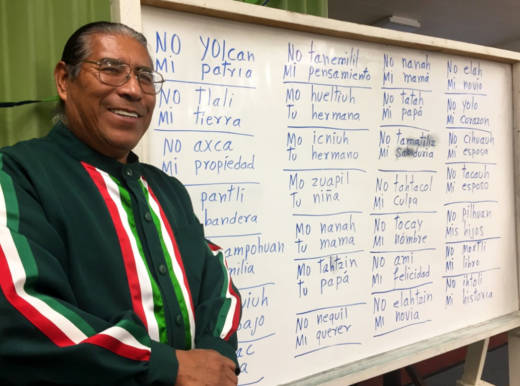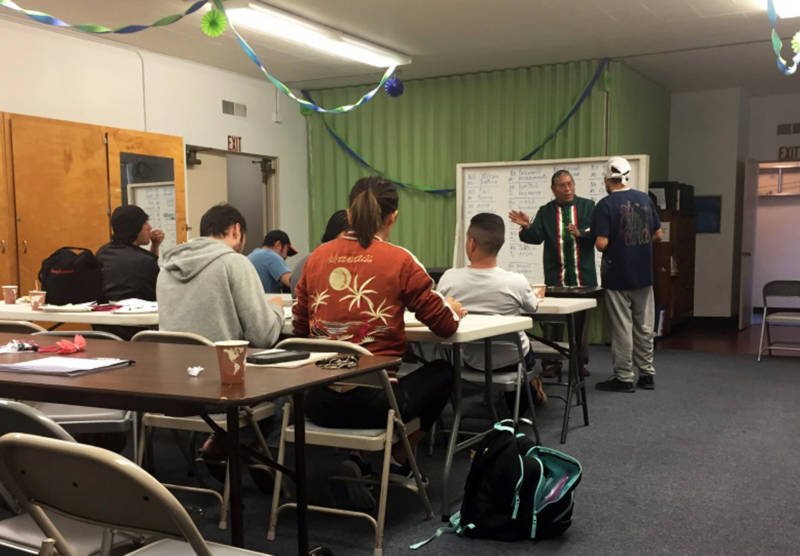There’s no dearth of culture and language in Southern California. The Census Bureau rates the 40 most common languages spoken by Americans — and 39 of them are spoken in L.A.
At a church in Santa Ana, you’ll hear sounds that have resonated for thousands of years. Each Saturday morning, people gather to speak and learn the ancient language of the Aztecs: Nahuatl.
Five centuries after the Aztec culture was crushed by Spanish conquistadors, the language survives, still spoken by an estimated 1.5 million people, mostly in central Mexico.
A Man on a Mission
For about 26 years, David Vazquez has been teaching the ancient language and culture of the Aztecs.
“One class usually goes over history, customs and traditions and words the students aren’t familiar with,” said Vazquez. “The goal is to continue, with our students, to try to rescue our official language.”


